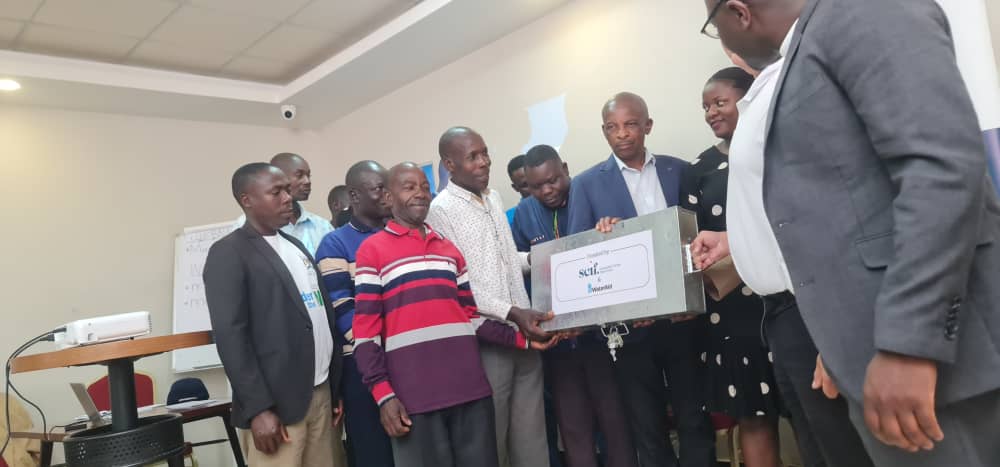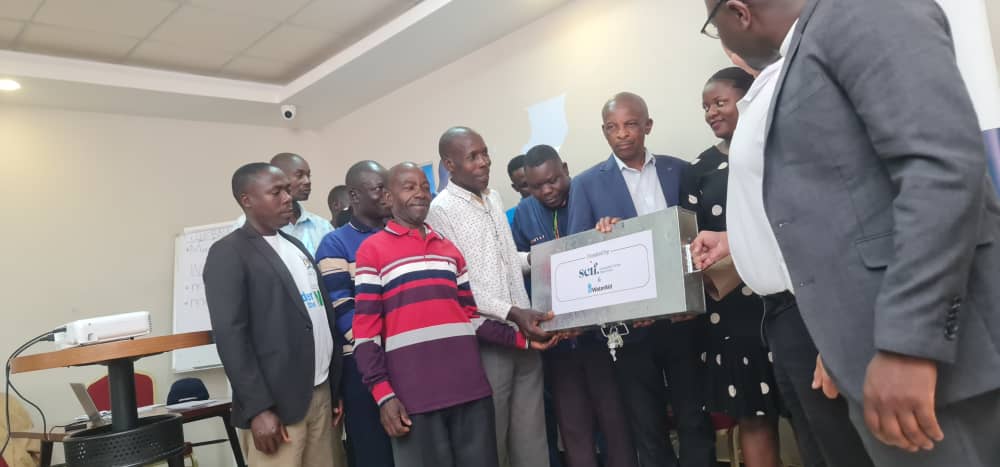
 Mama FM
Mama FM

 Mama FM
Mama FM
24 July 2024, 1:14 pm

By Annet Nakato
The Sustainable Climate Impact Fund (SCIF) recently hosted a high-level seminar in Masaka, Uganda, emphasising its pivotal role in enhancing climate change mitigation efforts across Kalungu, Lyantonde, and Kabarole districts.
As a pioneering social enterprise, SCIF’s mission revolves around improving community health, wellbeing, and socio-economic opportunities in the face of climate challenges.
During the seminar, SCIF officials emphasised the urgent need to address the intersection of climate and health issues. They highlighted their ongoing initiatives, particularly the refurbishment of non-functional water points in local communities.
These efforts not only aim to mitigate health risks associated with contaminated water but also include comprehensive community hygiene education programmes facilitated by WaterAid Uganda.
“Investing in clean water infrastructure is central to our strategy,” stated Ola Bankole, SCIF’s Operations Director. “By ensuring sustainable access to safe water, we reduce the prevalence of waterborne diseases and empower women, who traditionally bear the burden of water collection, to engage more in economic activities.”
SCIF, a subsidiary of the esteemed London School of Hygiene & Tropical Medicine (LSHTM), aligns its projects with rigorous environmental standards to earn certifications such as the Gold Standard. This accreditation supports their goal of offsetting carbon emissions through sustainable practices.
Monica Badaru, representing LSHTM’s Uganda Research Unit, expressed enthusiasm about SCIF’s progress in enhancing water access across Kalungu and Lyantonde districts. “The collaboration between SCIF and local communities exemplifies our commitment to achieving sustainable development goals and combating climate change,” she affirmed.
SCIF’s safe water project, initiated in 2023 in collaboration with WaterAid Uganda, has already refurbished numerous boreholes and installed solar-powered units, significantly bolstering access to clean water.
These efforts align with Uganda’s national objectives of achieving universal access to safe drinking water and sanitation by 2030.
The seminar concluded with a commitment from SCIF and its partners to continue innovating and expanding their initiatives, ensuring a sustainable future where communities thrive amidst climate challenges.